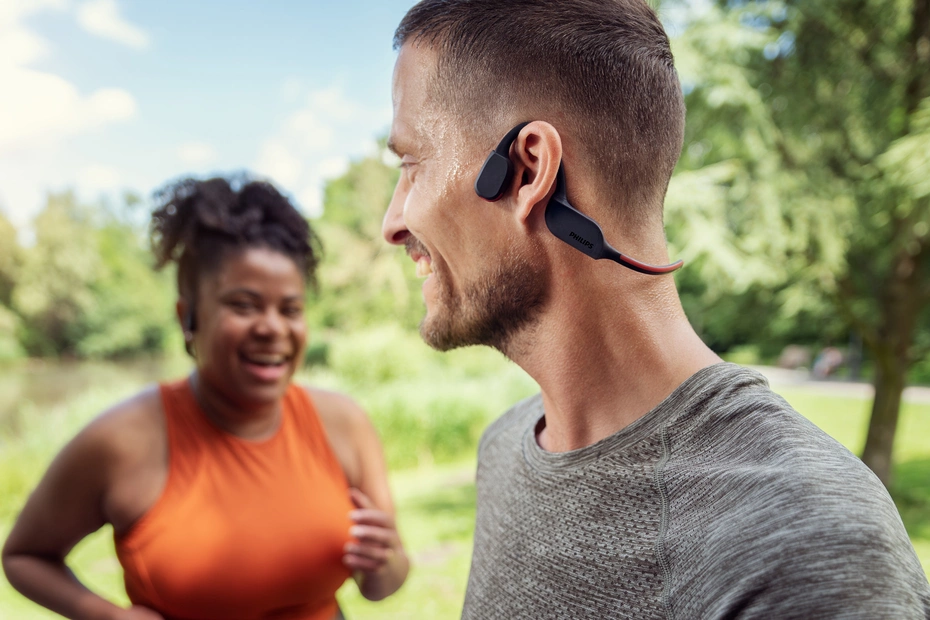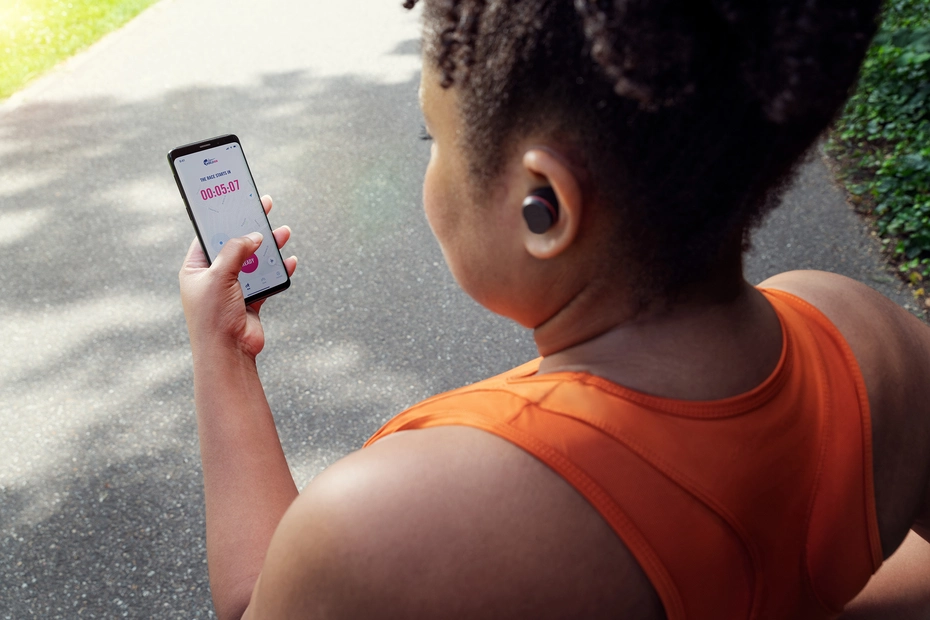When we listen to music, we instinctively adapt our movements to its rhythm. For neuroscientist Dr Jowinn Chew, this is a clear indication that the right sounds in our ear enable us to increase our focus and step up our speed.
Music is an elixir of life. It lifts our spirits, gives us energy and gets us moving. And, as British psychology researcher Dr Jowinn Chew explains, it plays a central role in how we run and train: “We listen to music that we like and our brains release dopamine. Often known as the ‘happy hormone’, dopamine not only improves our mood but also helps us to concentrate better on what we are doing. As well as this, music distracts us from the feeling of mental fatigue and can help us to run faster.”
Before her PhD studies at King’s College London, Dr Chew completed an MSc in Neuroscience at the University of Sussex. She is currently working as a researcher at London South Bank University. As she explains: “Studies have shown that people tend to synchronise their movements to the tempo of the music they are listening to. This is why high-energy music with a greater number of beats per minute (BPM) motivates us to run faster.”
Music that sets the pace
Juan David Gaviria – also known as “Bboy Spin”, who won the British Red Bull BC One solo breakdance competition in 2016, can confirm this based on first-hand experience. As well as being a spectacular breakdancer, Colombian-born Gaviria is an enthusiastic runner and is currently preparing for the Wings for Life World Run on 7 May. He likes to begin his training sessions to the sound of chilled-out 90s hip-hop, which usually clocks in at a relaxed 90 BPM or so: “As a dancer, I’m used to moving to the beat of the music.”
When he is ready to knock the tempo up a notch, he switches to faster music, for instance using house music to set the pace for more intensive training. This kind of electronic dance music is typically produced at 120 BPM with a four-on-the-floor rhythm, where the bass drum is hit on every beat: “I’ve found I can manage my breathing more easily with this music. I breathe in for two steps and then out for two steps – but every four cycles, I breathe in and out for twice as long. And that helps me keep my speed constant when I’m running for longer durations.”

Philips sports headphones invented headphones that play a key role in running to music.
Focus on headphones
Dr Chew says that the right headphones – for instance the Philips sports headphones that were specially developed for this purpose – play a key role in running to music: “They can block out external factors that might have a negative reaction on our motivation. And they help us to concentrate fully on the music, on the lyrics, the melody and the beat. And, in turn, they help us to run faster.”
Juan David Gaviria knows all about harnessing the positive impact of music: “But of course you have to know what kind of music does it for you. What songs rev you up? What sounds make you want to keep on running?” He also reveals his own secret weapon for staving off fatigue – an ecstatic English underground sound that goes past the 140 BPM mark and may take a bit of getting used to at first: “When I notice myself getting tired, I put on some old-school grime …
Favourite music as added motivation
According to Dr Jowinn Chew, Juan David Gaviria’s instincts are exactly right – and they are even backed up by scientific research: “Studies have shown that people are additionally motivated by music with lyrics or a melody that have a particular significance for them. They listen more actively and are less easily distracted.”

The right songs can influence your running speed.
This is why it’s also a good idea to put together your own playlist (or the one the Wings for Life Word Run prepared for you) with songs that motivate and inspire you. Ideally, you should choose songs with suitable speeds (websites like songbpm.com are useful for this). Dr Chew: “If you are already used to running for longer stretches, then listen to faster songs that are full of energy. But if you still consider yourself to be a beginner, then it’s better to choose slower songs and gradually increase the speed – in both the music and your running.”
Lost in music
Music can also be a key factor contributing to “runner’s high”, a natural state of elation that allows long-distance runners to forget all their aches and pains and makes their legs feel lighter. Scientists have yet to identify exactly how this mental euphoria is triggered. For a long time, it was thought to be due to endorphin release, but more recent research points above all to endocannabinoids produced by the body itself.
However, it seems that a number of factors need to come together for this legal doping agent to be released in the first place. In addition to fatigue that needs to be overcome, these include the right settings, namely suitable running gear and, of course, feel-good music in your ear. For Juan David, this is a basic prerequisite for enjoying life anyway: “As a Latin American, music is a very important part of my cultural heritage. We grow up with music and have the right music for every occasion. It has an enormous influence on our everyday activities.”
Music is calming and relaxing
In conclusion, Dr Chew adds: “Just because you’ve finished your run, it doesn’t mean that music stops having an impact. On the contrary, it helps you to relax more quickly and effectively. Slower music can bring down your heart rate and calm your mind.” And then it can also make you want to go running again very soon.
Preferably at what is possibly the most unique running experience of the year: the tenth Wings for Life World Run, which is just around the corner!
